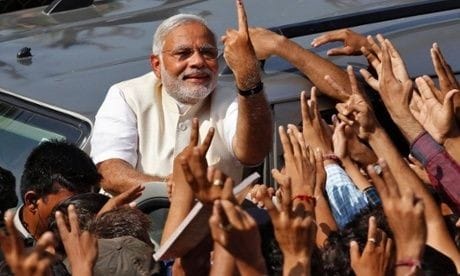India is the world’s largest democracy and politics is an integral part of the country’s social and cultural fabric. The Indian political landscape is complex and diverse, reflecting the country’s linguistic, regional, and ethnic diversity.
The Indian political system is a federal parliamentary democracy, where power is divided between the central government and the state governments. The Constitution of India provides for a secular and democratic system, where all citizens have equal rights and opportunities.
The Indian Parliament is composed of two houses, the Lok Sabha (lower house) and the Rajya Sabha (upper house). Members of the Lok Sabha are directly elected by the people, while members of the Rajya Sabha are elected by state legislative assemblies.
The Indian political system is dominated by political parties, both national and regional. The major national parties are the Indian National Congress (INC) and the Bharatiya Janata Party (BJP), while regional parties such as the All India Trinamool Congress (AITC), Dravida Munnetra Kazhagam (DMK), and Shiv Sena have a significant presence in their respective states.
The political parties in India are based on various ideologies, ranging from left-wing socialism to right-wing nationalism. The Indian National Congress is a center-left party, while the Bharatiya Janata Party is a center-right party. Other parties such as the Communist Party of India (Marxist) and the Communist Party of India are more ideologically aligned with socialism and communism.
Indian politics is often marked by issues of identity such as caste, religion, and language. Caste-based politics has been prevalent in India for centuries, with different castes forming their own political parties or aligning with existing parties. Similarly, religion-based politics has also been a prominent feature of Indian politics, with parties appealing to voters on the basis of their religious beliefs.
One of the key challenges facing Indian politics is corruption. Corruption is a pervasive problem in India and has been a major issue in elections. Political parties and candidates often use illegal means such as bribes and money laundering to fund their campaigns. This has led to calls for greater transparency in political funding and electoral reforms.
Another issue facing Indian politics is the lack of women’s representation. Despite constitutional guarantees of equal rights, women are underrepresented in politics, with only around 22% of seats in the Lok Sabha held by women. This has led to calls for greater women’s participation in politics and the reservation of seats for women in Parliament and state assemblies.
In conclusion, politics in India is a complex and diverse field, reflecting the country’s cultural, linguistic, and regional diversity. Political parties play a dominant role in the Indian political system, with parties based on various ideologies and appealing to voters on the basis of identity. Corruption and the lack of women’s representation are some of the key challenges facing Indian politics, which need to be addressed through electoral reforms and greater transparency in political funding. Despite these challenges, India’s democracy remains vibrant and continues to be a model for other developing countries around the world.










